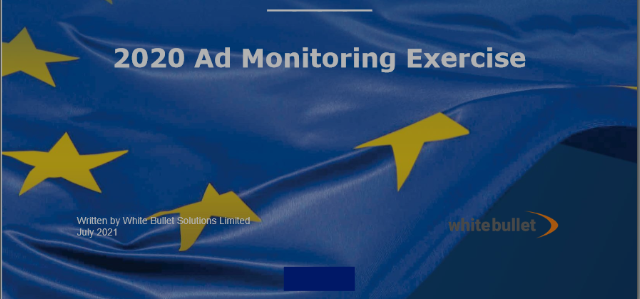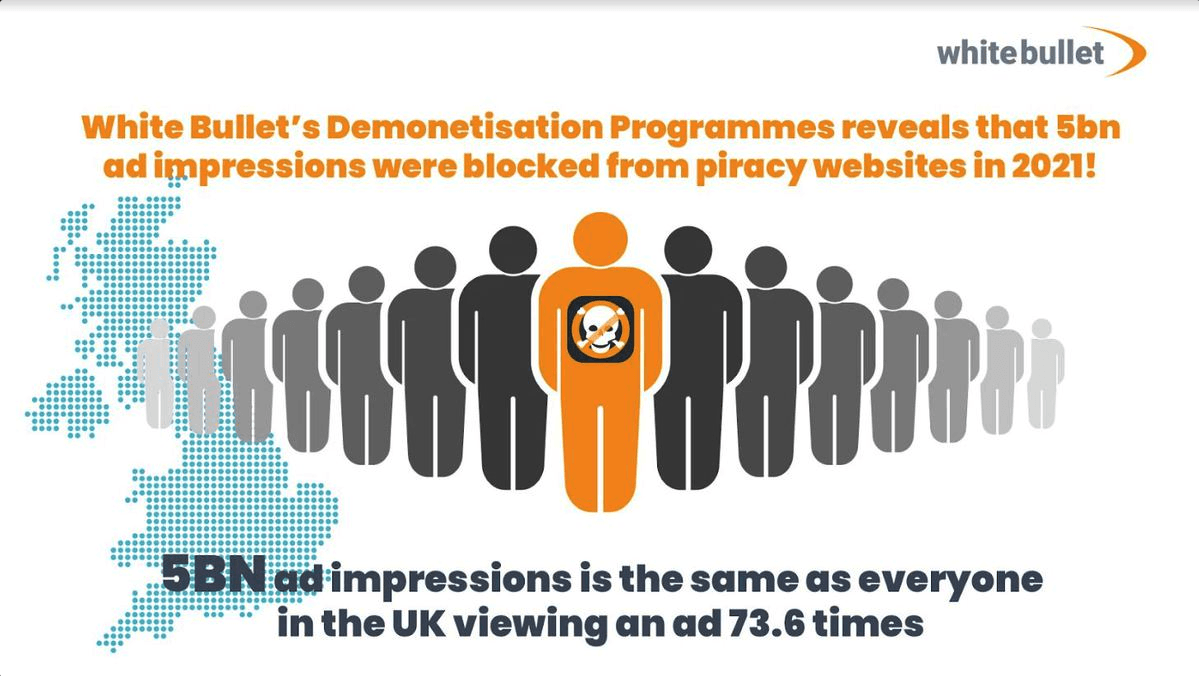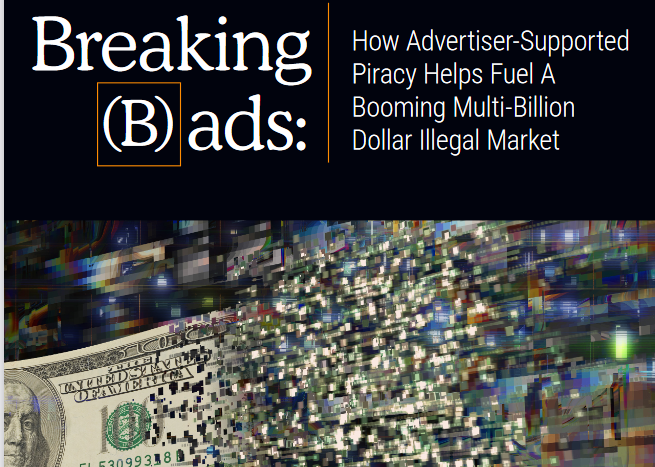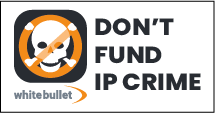As offices, pubs, gyms and shops close in the thousands, the world has moved indoors and online.
More people are taking to living life on the web and that means the Internet pirates are benefitting. White Bullet's Q1 2020 data shows a 50% traffic increase to the top pirate websites since the last quarter in the US and UK alone.
Much of this is due to consumers looking for more available free content. More pageviews equates to more advertising displayed to those new website visitors, and more eyeballs means more money to the pirates and the ad companies placing those ads.
There have been more than 6 billion ad impressions on pirate websites since lockdown in Q1 alone.
Find out if your advertising partners are placing your ads on pirate websites – email us for a FREE digital HealthCheck for your brand.
Branded ads on high-risk pirate websites have gone up by 163% since December 2019 before lockdowns began. This is despite loud and clear calls from the advertising industry for ad companies to treat pirate websites as they treat other publishers of illegal and inappropriate content and stop serving them ads .
White Bullet has been measuring the rise of ads belonging to or representing premium household name brands, and it’s a cause for concern. Premium brand ads increased by 150% on high-risk websites in that same period.
Ad companies are not going to stop placing premium brand ads on pirate websites voluntarily. Why would they? These ad companies get paid for all ad impressions.
The only way ad-funded piracy will stop is for brands to lean heavily on the partners within their ad supply chain and tell them to prevent ads on pirate websites . Ad companies will listen to their clients, the brands that ultimately pay them. The problem is that brands do not have transparency regarding their adverts on pirate websites.
Get transparency on the high-risk websites where your ads have been found and who placed them – email us for a FREE digital HealthCheck for your brand.
White Bullet already provides this data to brands to help them identify such instances of non-compliance by their ad partners. This is important to help promote self-regulation. Otherwise regulators are threatening to step in.
Regulators seek to stop ad funding to websites run by cybercriminals . These websites hurt vulnerable consumers as the websites carry data miners, browser hijackers, phishing campaigns and malware. White Bullet's latest data shows 20% of pirate websites carry malware designed to steal private information .
The Trustworthy Accountability Group (TAG) and the UK Intellectual Property Office (IPO) , amongst others, already track non-compliant brands and their ad partners that continue to support pirate websites. They have launched recent enforcement programmes to address persistently non-compliant companies targeting them for outreach and action .
Find out if your brand is at risk – email us for a FREE digital HealthCheck for your brand.
Brands must demand compliance from their digital ad partners to specifically stop ad placement on pirate websites . Failure to do so harms their reputation with consumers and risks scrutiny from regulators .
To protect their reputation, brands must track their ad partners’ compliance via transparency data and evidence when their ads appear on pirate websites.
Get started with IPIP
Collect all your data for unified prevention, detection, and response to digital piracy.
White Bullet has helped over 3,000 brands to avoid funding digital piracy.
With over a billion dollars of ad spend funding IP infringement in 2020, it's time to work with us to stop pirates from using advertising to profit from distributing intellectual property.











